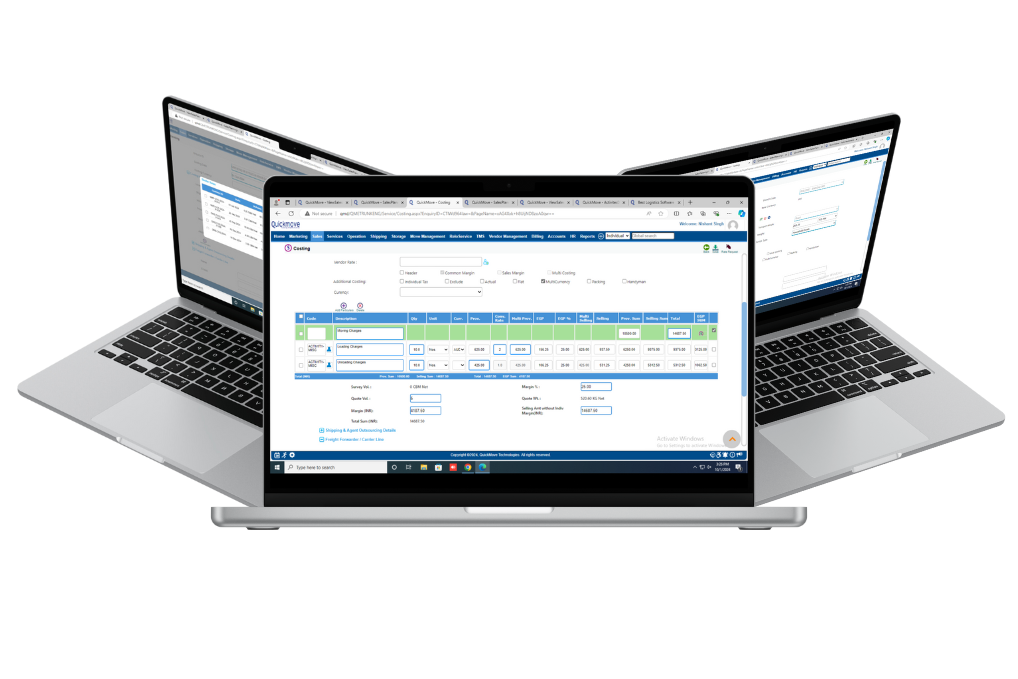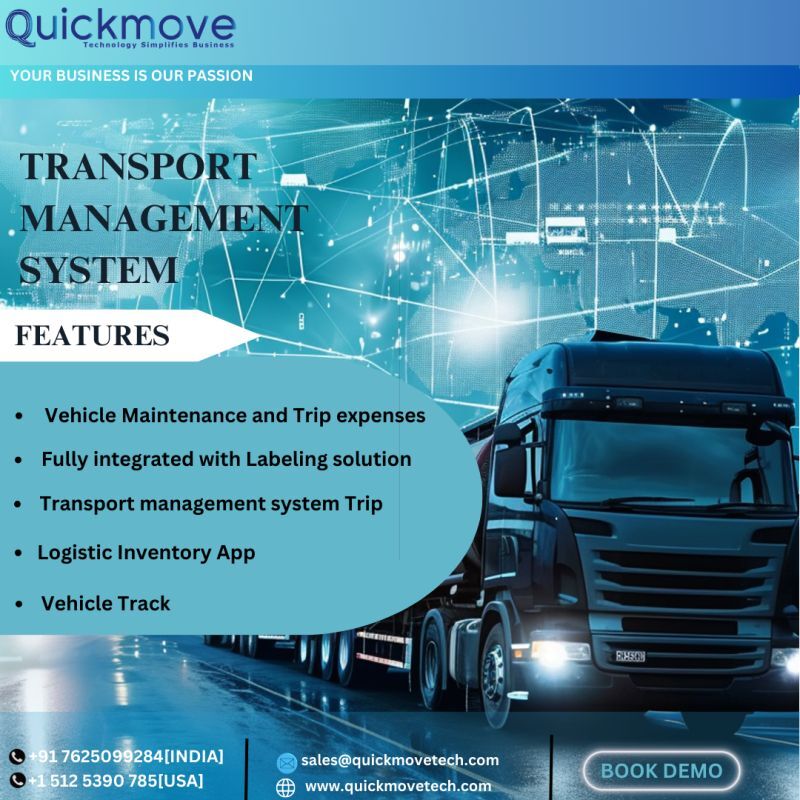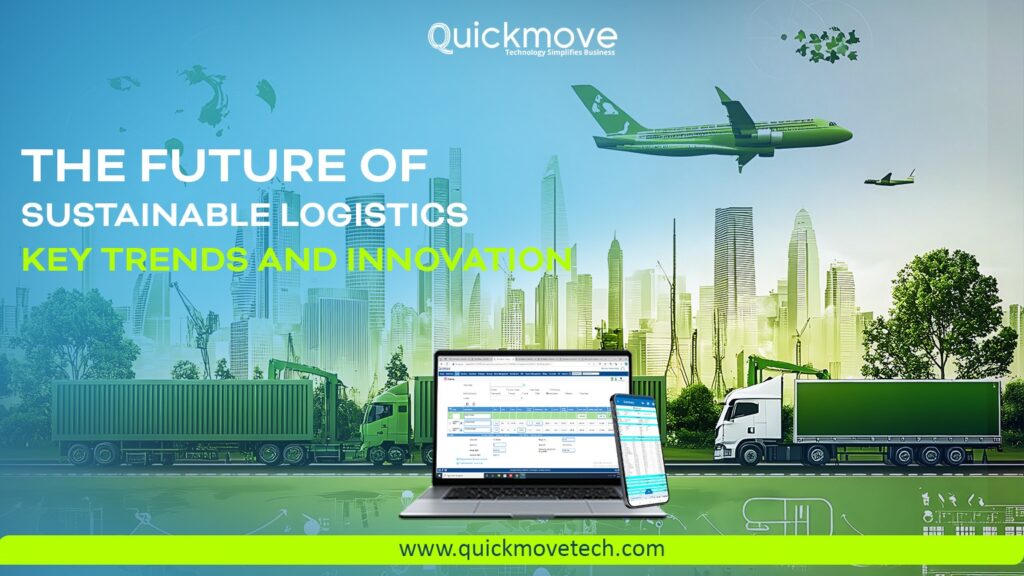Introduction
In today’s fast-paced world, the logistics and transportation industry plays a vital role in the success of businesses and organizations. As the demand for timely and efficient delivery of goods and services continues to rise, companies are turning to technology-driven solutions to optimize their transportation processes. One such powerful tool that has revolutionized the way logistics operates is the Transport Management System (TMS).
Definition of Transport Management System
Transport Management System (TMS) is a software solution that streamlines, automates, and optimizes various aspects of transportation and logistics management. It encompasses everything from route planning, fleet tracking, and real-time shipment tracking to inventory management and warehouse integration. By providing end-to-end visibility and control over transportation operations, a TMS empowers businesses to achieve higher levels of efficiency and cost savings.
Importance and Significance of an Efficient Transport Management System
In today’s highly competitive landscape, an efficient Transport Management System has become a crucial differentiator for businesses. Its significance lies in its ability to bring together various stakeholders, streamline processes, and ensure seamless coordination. With a well-implemented TMS, organizations can achieve improved customer satisfaction, reduced transportation costs, enhanced supply chain visibility, and better decision-making capabilities.
Benefits of a Transport Management System to Businesses
Streamlined Route Planning and Optimization:
TMS uses advanced algorithms to optimize routes, considering factors like distance, traffic, delivery schedules, and vehicle capacity. This results in shorter transit times and reduced fuel consumption.
Enhanced Fleet Tracking and Management:
With real-time GPS tracking, businesses can monitor the exact location and status of their vehicles, ensuring efficient fleet utilisation and enabling quick responses to unexpected events.
Improved Operational Efficiency and Cost Savings:
By automating manual processes and reducing paperwork, TMS reduces administrative overheads, leading to significant cost savings and increased productivity.
Real-time Shipment Tracking and Visibility:
TMS provides customers and stakeholders with real-time updates on shipment status, ensuring transparency and boosting customer satisfaction.
Effective Inventory Management and Warehouse Integration:
A TMS enables seamless integration between transportation and warehousing operations, optimizing inventory levels and reducing holding costs.
Key Features of a Transport Management System
Order Management and Load Planning:
TMS allows businesses to consolidate orders and plan optimal loads, leading to more efficient use of transportation resources.
Carrier Selection and Performance Monitoring:
TMS helps in choosing the right carriers based on performance data, ensuring reliable and timely deliveries.
Freight Audit and Payment:
TMS automates the process of auditing freight bills, reducing the risk of errors and overcharging.
Reporting and Analytics:
TMS provides valuable insights through customizable reports and analytics, aiding data-driven decision-making.
Integration Capabilities with other Business Systems:
TMS can be integrated with ERP, CRM, and other systems, enabling seamless information flow across the organization.
How a Transport Management System Benefits Different Industries
E-commerce and Retail:
TMS ensures timely deliveries, enabling e-commerce businesses to meet customer expectations and gain a competitive edge.
Manufacturing and Distribution:
TMS optimizes the supply chain, reducing lead times and inventory carrying costs for manufacturing and distribution companies.
Pharmaceuticals and Healthcare:
TMS facilitates the safe and efficient transportation of critical medical supplies and pharmaceutical products, ensuring their timely delivery.
Food and Beverage:
TMS enables precise temperature-controlled transportation, maintaining product quality and compliance with food safety regulations.
Automotive and Logistics:
TMS streamlines complex logistics networks, helping automotive companies manage their global supply chains effectively.
Case Studies: Successful Implementation of Transport Management Systems
**Company A: From Manual to Automated Transportation Processes: Company A achieved 30% cost savings and improved on-time deliveries by 25% after implementing a TMS.
**Company B: Reducing Costs and Enhancing Customer Satisfaction: TMS integration resulted in a 15% reduction in transportation costs and a 20% increase in customer satisfaction for Company B.
**Company C: Enhancing Supply Chain Visibility and Collaboration: Company C improved supply chain visibility by 40% and strengthened collaboration with vendors and carriers.
Future Trends in Transport Management Systems
Artificial Intelligence and Machine Learning Integration:
AI-powered TMS will optimize routes, predict maintenance needs, and provide proactive solutions.
Internet of Things (IoT) for Real-time Monitoring:
IoT-enabled devices in transportation vehicles will provide real-time data on vehicle conditions and cargo status.
Sustainability and Green Transportation Initiatives:
TMS will focus on eco-friendly practices, reducing carbon footprints through optimized routes and greener vehicle choices.
Conclusion
In conclusion, a Transport Management System is the backbone of an efficient and successful transportation operation.
With its multitude of benefits, it revolutionizes the way businesses handle logistics, enabling streamlined processes, cost savings, and improved customer satisfaction.
As technology continues to evolve, embracing a TMS is essential for businesses looking to stay ahead in the competitive market.
By implementing a Transport Management System and staying abreast of emerging trends, organizations can unlock new levels of efficiency and success in their transportation endeavors.
 Email Us
Email Us

 Freight Forwarding Software
Freight Forwarding Software Moving/Removal Software
Moving/Removal Software Warehouse Management System
Warehouse Management System Transport Management System
Transport Management System Customer Service Portal
Customer Service Portal Move Survey Quote Pro
Move Survey Quote Pro Digital Logistics Inventory App
Digital Logistics Inventory App

